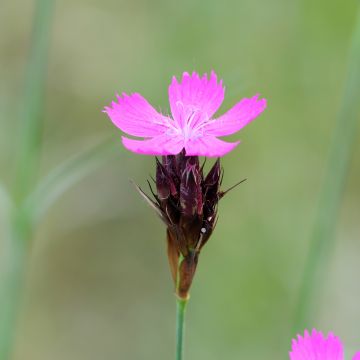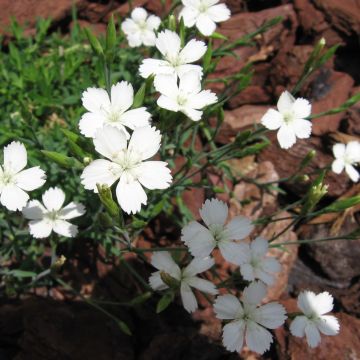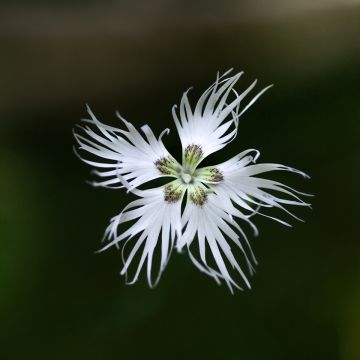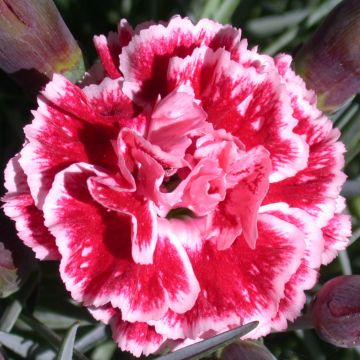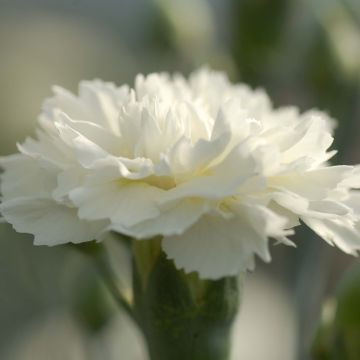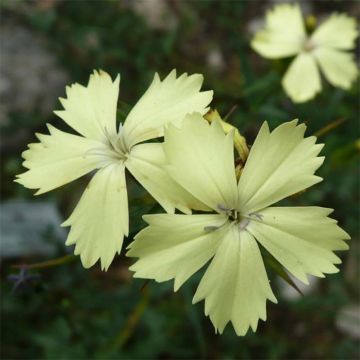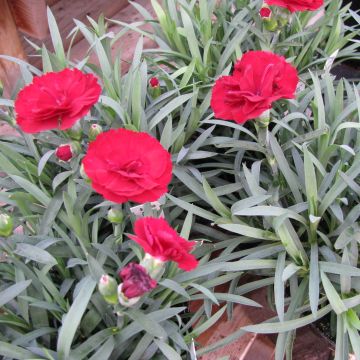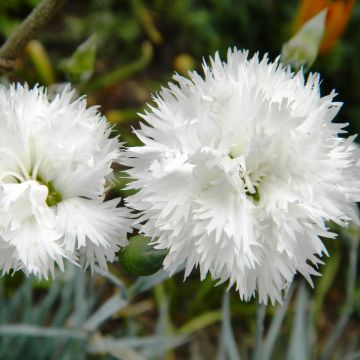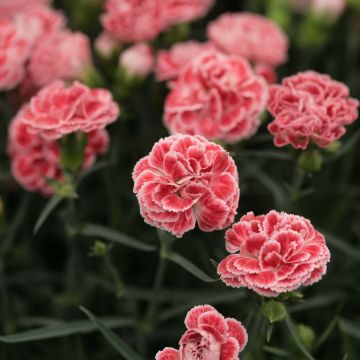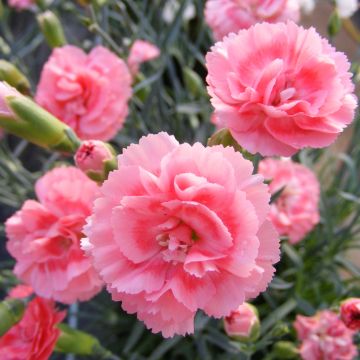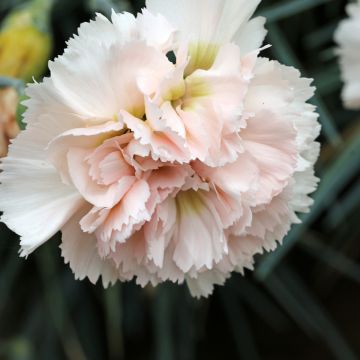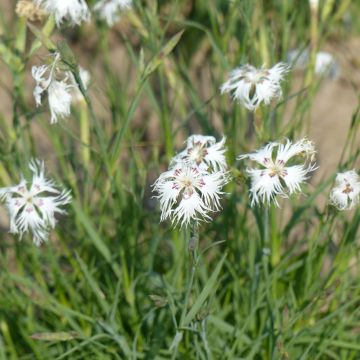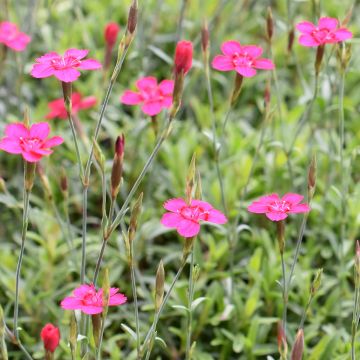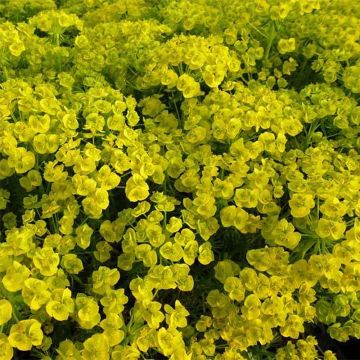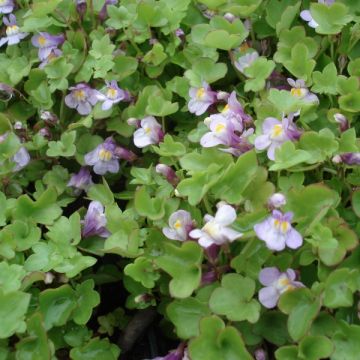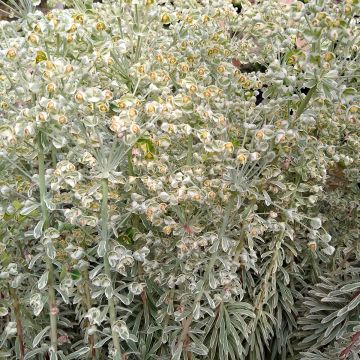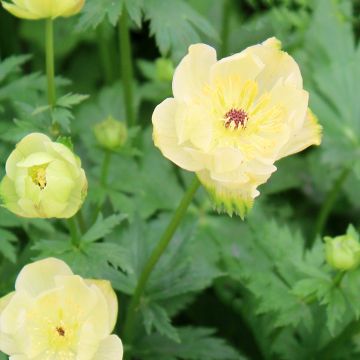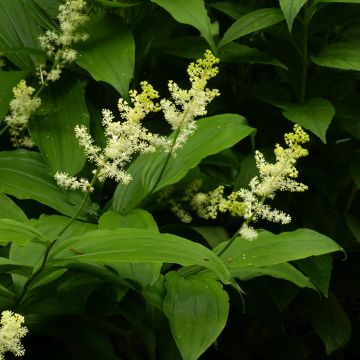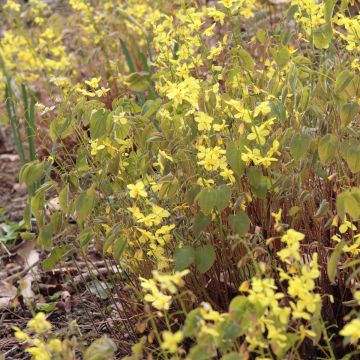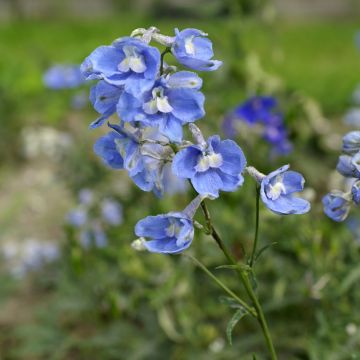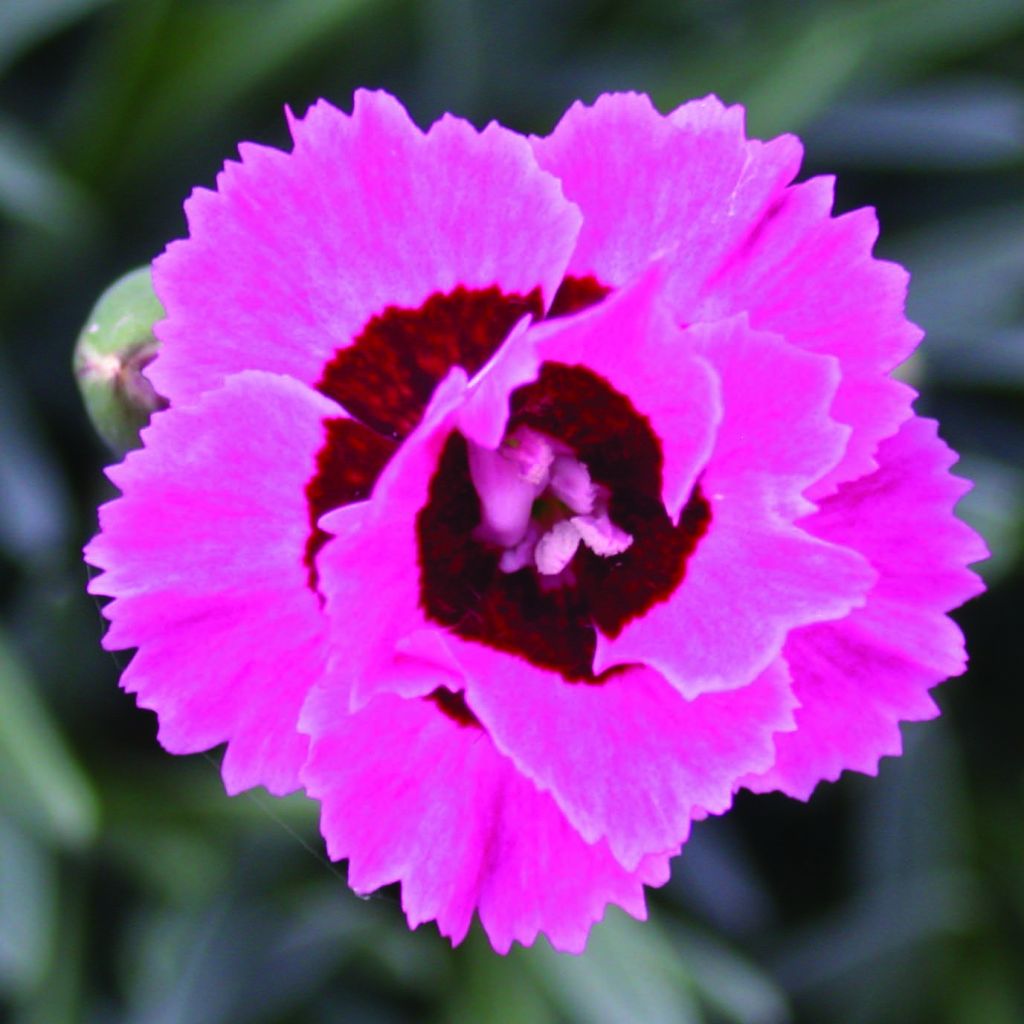

Dianthus Evening Star - Oeillet nain
Dianthus Evening Star
Dianthus WHETMAN STARS ® Evening Star
Pink, Pot Carnation
I hope that, contrary to the previous opinion, mine will flower red.
Francine, 13/04/2023
Special offer!
Receive a €20 voucher for any order over €90 (excluding delivery costs, credit notes, and plastic-free options)!
1- Add your favorite plants to your cart.
2- Once you have reached €90, confirm your order (you can even choose the delivery date!).
3- As soon as your order is shipped, you will receive an email containing your voucher code, valid for 3 months (90 days).
Your voucher is unique and can only be used once, for any order with a minimum value of €20, excluding delivery costs.
Can be combined with other current offers, non-divisible and non-refundable.
Why not try an alternative variety in stock?
View all →This plant carries a 12 months recovery warranty
More information
We guarantee the quality of our plants for a full growing cycle, and will replace at our expense any plant that fails to recover under normal climatic and planting conditions.

Would this plant suit my garden?
Set up your Plantfit profile →
Description
Dianthus 'Evening Star' is part of a new series of hybrid, dwarf and fragrant carnations, with vibrant colours. It is perfectly suited to the ornamentation of flower pots and containers. Equally at home in rockeries, this hardy small perennial forms a dense and low cushion composed of fine evergreen grey-green leaves. It boasts a brilliant summer flowering of an unusual colour. The brown-red heart of its semi-double flowers is surrounded by bright pink. It will thrive in full sun, in well-drained soil.
'Evening Star' belongs to the Caryophyllaceae family. It is a recent cultivar, developed in England and given an Award of Garden Merit by the Royal Horticultural Society, somewhat equivalent to the golden palm of the plant world. The growth of this carnation is quite fast. Its adult size will not exceed 10 to 15cm (4 to 6in) in height when flowering, with a spread of 20 to 30cm (8 to 12in). This carnation forms a tight clump. From June to August, it produces solitary, semi-double flowers with fringed edges carried by slender and short stems. The flowers bear a wide central halo of mahogany colour adorning a corolla of a bright magenta pink. The flowers' fragrance is more pronounced in hot weather. Its linear, glabrous, evergreen and leathery leaves are of a superb grey-green.
Dianthus 'Evening Star' is ideal for borders, embankments, and dry rockeries. It can accompany other flowering cushions such as helianthemums, silenes, dwarf artemisia (Artemisia lanata), wall bellflowers, Caucasian rock cress, Phlox subulata, and Delosperma cooperi, or Erigeron karvinskianus and bloody cranesbill (Geranium sanguineum). This plant looks lovely between the stones of a wall or paving, or in a flower pot. It adapts very well to pot culture, in light soil, but will require regular watering and some fertiliser additions during the season to remain floriferous.
Report an error about the product description
Dianthus Evening Star in pictures
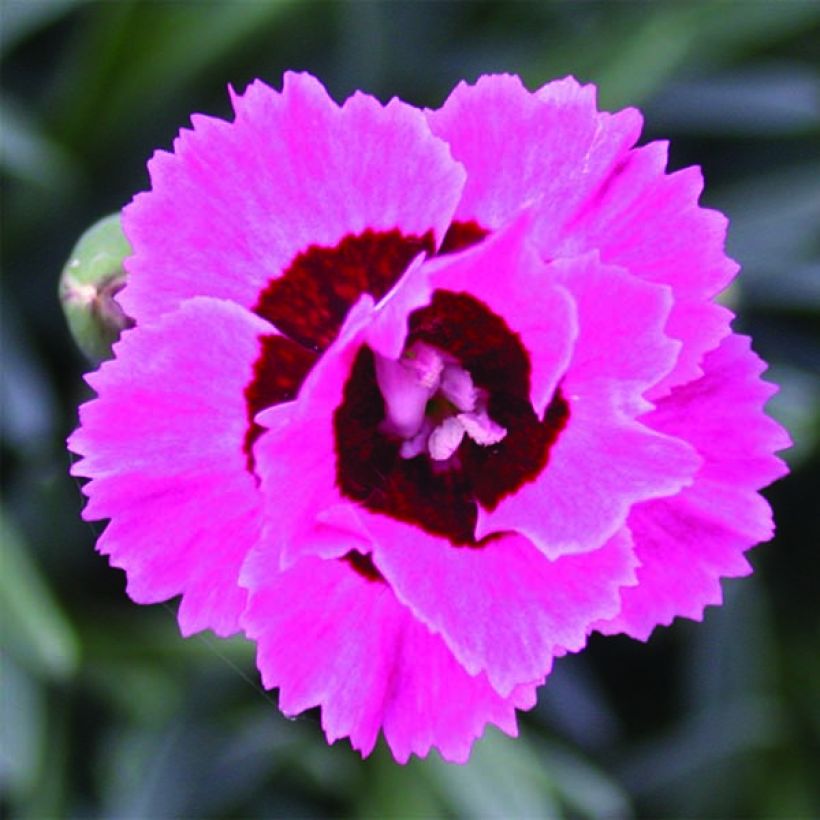

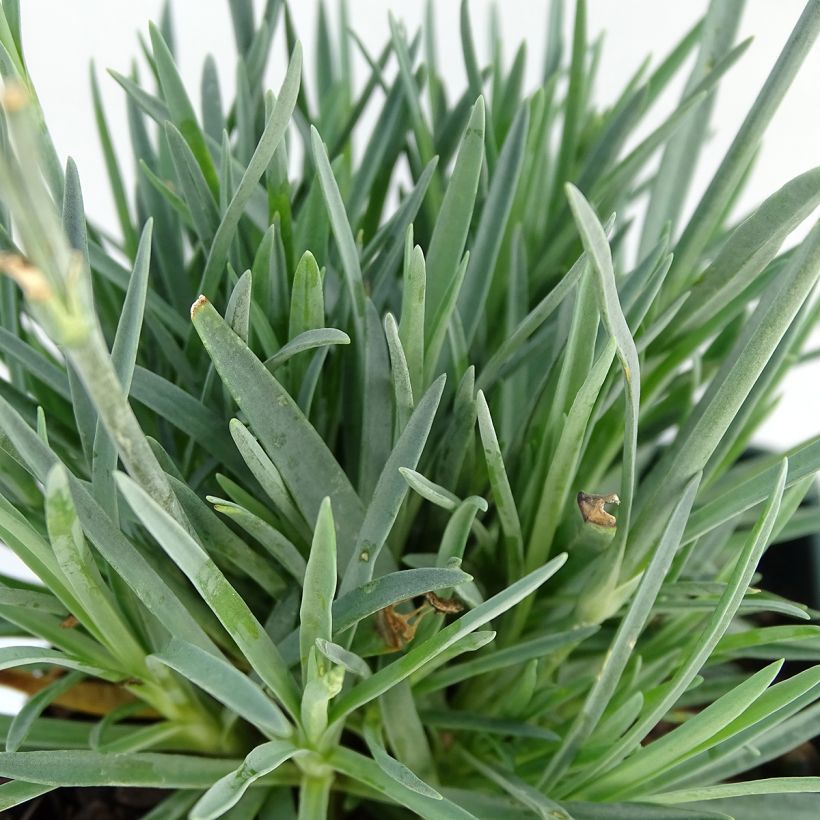

Flowering
Foliage
Plant habit
Botanical data
Dianthus
WHETMAN STARS ® Evening Star
Caryophyllaceae
Pink, Pot Carnation
Cultivar or hybrid
Other Dianthus - Pinks
View all →Planting and care
Plant Dianthus 'Evening Star' in ordinary, permeable and humiferous, stony, preferably limestone, dry to moist and especially well-drained soil. Gravel-rich soil yields good results. In open ground, this plant is very hardy, withstanding temperatures below -15°C (5°F). It prefers a very sunny exposure. Lightly trim the clump after summer flowering to promote regrowth in September. In rich soil, trim part of the foliage with shears after flowering to maintain a dense habit. Apply a balanced fertiliser to poor soil in March. Divide the clumps every 3 years to rejuvenate those whose base is thinning. Propagate by performing layering or by taking cuttings. Cultivating in pots will require regular watering and some flower fertiliser applications during the season to stimulate flower production.
Planting period
Intended location
Care
-
, onOrder confirmed
Reply from on Promesse de fleurs
Similar products
Haven't found what you were looking for?
Hardiness is the lowest winter temperature a plant can endure without suffering serious damage or even dying. However, hardiness is affected by location (a sheltered area, such as a patio), protection (winter cover) and soil type (hardiness is improved by well-drained soil).

Photo Sharing Terms & Conditions
In order to encourage gardeners to interact and share their experiences, Promesse de fleurs offers various media enabling content to be uploaded onto its Site - in particular via the ‘Photo sharing’ module.
The User agrees to refrain from:
- Posting any content that is illegal, prejudicial, insulting, racist, inciteful to hatred, revisionist, contrary to public decency, that infringes on privacy or on the privacy rights of third parties, in particular the publicity rights of persons and goods, intellectual property rights, or the right to privacy.
- Submitting content on behalf of a third party;
- Impersonate the identity of a third party and/or publish any personal information about a third party;
In general, the User undertakes to refrain from any unethical behaviour.
All Content (in particular text, comments, files, images, photos, videos, creative works, etc.), which may be subject to property or intellectual property rights, image or other private rights, shall remain the property of the User, subject to the limited rights granted by the terms of the licence granted by Promesse de fleurs as stated below. Users are at liberty to publish or not to publish such Content on the Site, notably via the ‘Photo Sharing’ facility, and accept that this Content shall be made public and freely accessible, notably on the Internet.
Users further acknowledge, undertake to have ,and guarantee that they hold all necessary rights and permissions to publish such material on the Site, in particular with regard to the legislation in force pertaining to any privacy, property, intellectual property, image, or contractual rights, or rights of any other nature. By publishing such Content on the Site, Users acknowledge accepting full liability as publishers of the Content within the meaning of the law, and grant Promesse de fleurs, free of charge, an inclusive, worldwide licence for the said Content for the entire duration of its publication, including all reproduction, representation, up/downloading, displaying, performing, transmission, and storage rights.
Users also grant permission for their name to be linked to the Content and accept that this link may not always be made available.
By engaging in posting material, Users consent to their Content becoming automatically accessible on the Internet, in particular on other sites and/or blogs and/or web pages of the Promesse de fleurs site, including in particular social pages and the Promesse de fleurs catalogue.
Users may secure the removal of entrusted content free of charge by issuing a simple request via our contact form.
The flowering period indicated on our website applies to countries and regions located in USDA zone 8 (France, the United Kingdom, Ireland, the Netherlands, etc.)
It will vary according to where you live:
- In zones 9 to 10 (Italy, Spain, Greece, etc.), flowering will occur about 2 to 4 weeks earlier.
- In zones 6 to 7 (Germany, Poland, Slovenia, and lower mountainous regions), flowering will be delayed by 2 to 3 weeks.
- In zone 5 (Central Europe, Scandinavia), blooming will be delayed by 3 to 5 weeks.
In temperate climates, pruning of spring-flowering shrubs (forsythia, spireas, etc.) should be done just after flowering.
Pruning of summer-flowering shrubs (Indian Lilac, Perovskia, etc.) can be done in winter or spring.
In cold regions as well as with frost-sensitive plants, avoid pruning too early when severe frosts may still occur.
The planting period indicated on our website applies to countries and regions located in USDA zone 8 (France, United Kingdom, Ireland, Netherlands).
It will vary according to where you live:
- In Mediterranean zones (Marseille, Madrid, Milan, etc.), autumn and winter are the best planting periods.
- In continental zones (Strasbourg, Munich, Vienna, etc.), delay planting by 2 to 3 weeks in spring and bring it forward by 2 to 4 weeks in autumn.
- In mountainous regions (the Alps, Pyrenees, Carpathians, etc.), it is best to plant in late spring (May-June) or late summer (August-September).
The harvesting period indicated on our website applies to countries and regions in USDA zone 8 (France, England, Ireland, the Netherlands).
In colder areas (Scandinavia, Poland, Austria...) fruit and vegetable harvests are likely to be delayed by 3-4 weeks.
In warmer areas (Italy, Spain, Greece, etc.), harvesting will probably take place earlier, depending on weather conditions.
The sowing periods indicated on our website apply to countries and regions within USDA Zone 8 (France, UK, Ireland, Netherlands).
In colder areas (Scandinavia, Poland, Austria...), delay any outdoor sowing by 3-4 weeks, or sow under glass.
In warmer climes (Italy, Spain, Greece, etc.), bring outdoor sowing forward by a few weeks.






























